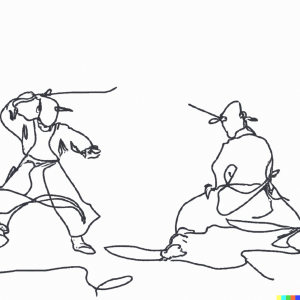Nav: FAQ

The term ‘battle royale’ was originally used to refer to a boxing or wrestling match where multiple contestants would fight to be the last man standing.
However, in 1999, the term was redefined by Koushun Takami’s dystopian novel, Battle Royale, and its 2000 film adaptation. The story depicts a group of individuals who are forced to fight each other to the death until only one survivor remains.
Since then, the battle royale genre has become increasingly popular across various media, including books, films, TV shows, and video games. Some notable examples include The Hunger Games (books and films), Fortnite (video game), and Squid Games (TV), among many others.
The popularity of the battle royale genre can be attributed to its high stakes, intense action, and the excitement of seeing multiple characters fight for survival. It also presents an opportunity for creators to explore complex themes such as human nature, power dynamics, and societal issues.
Despite its popularity, the battle royale genre has faced criticism for its violence and its potentially harmful impact on younger audiences. Some critics argue that it desensitizes audiences to violence and promotes aggression.
Regardless of these criticisms, the battle royale genre shows no signs of slowing down, with new games and adaptations being released regularly. It has become a cultural phenomenon that has captured the imagination of audiences worldwide, and it will continue to shape the entertainment industry in the years to come.